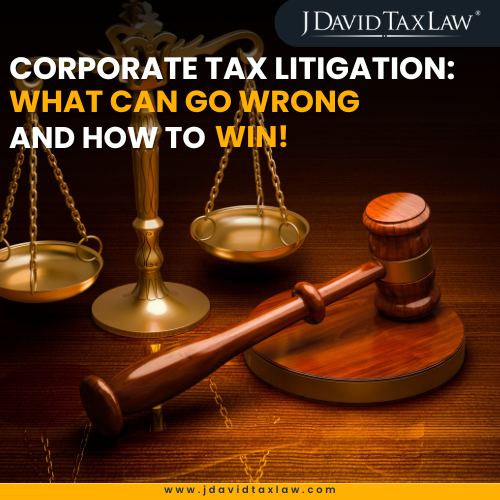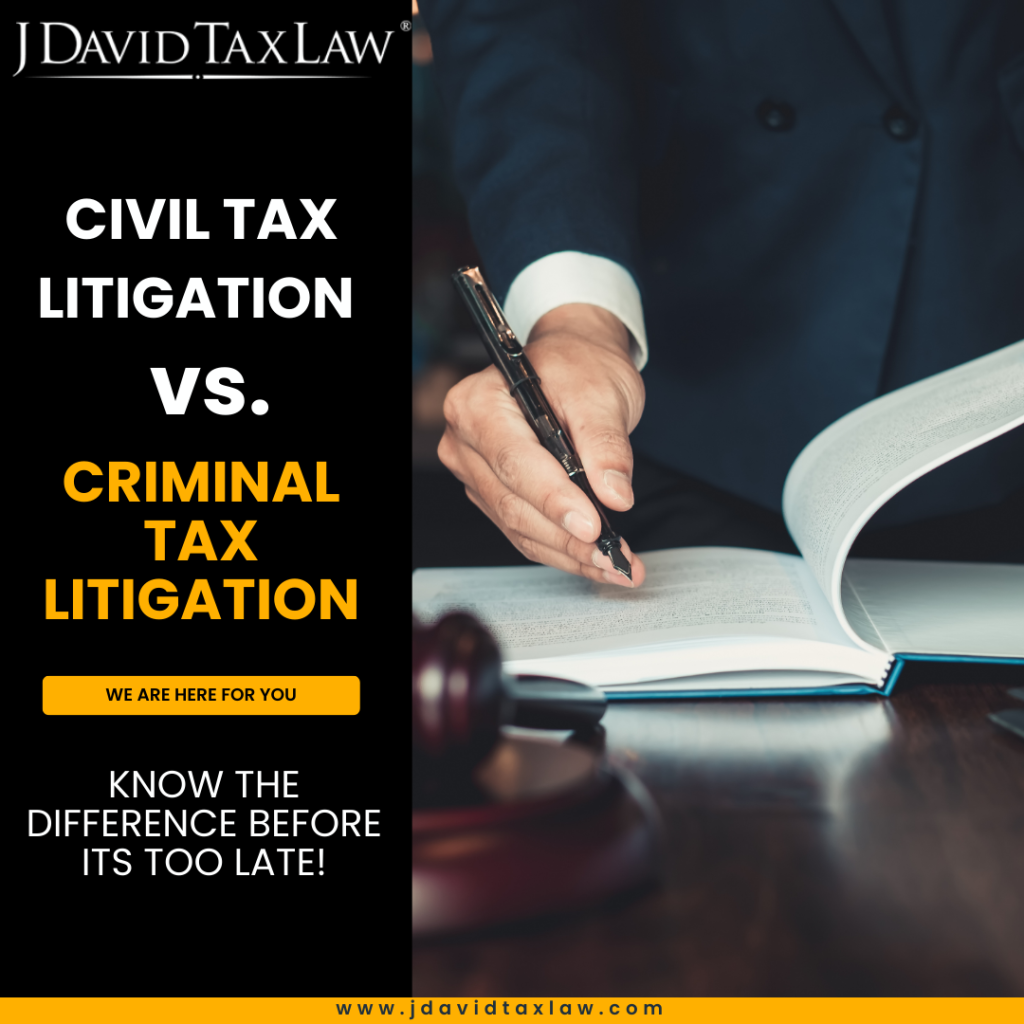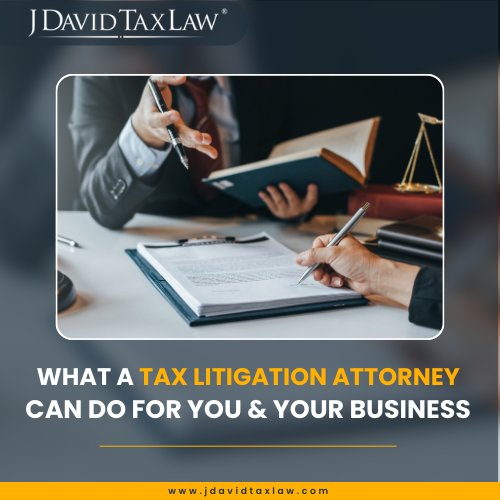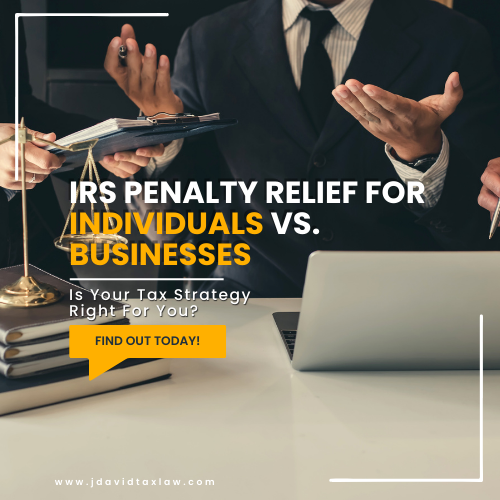Corporate tax litigation is one of the most complex and high-stakes areas of legal practice. As tax regulations evolve and government scrutiny intensifies, more corporations find themselves entangled in disputes with tax authorities.
Whether it’s due to an IRS audit, a refund dispute, or allegations of tax fraud, these cases can jeopardize a company’s finances and reputation. That’s why it’s critical to work with an experienced tax litigation attorney or a reputable tax litigation law firm to navigate these legal waters effectively.
What is Corporate Tax Litigation?
Corporate tax litigation refers to legal proceedings involving disputes between corporations and tax authorities over tax obligations. These cases can be civil or criminal and may involve federal, state, or international tax issues. From tax refund litigation to criminal tax litigation, companies may find themselves in court defending their filings or attempting to recover what they believe are unfair tax assessments.
The stakes are high, and the process can be lengthy and resource-intensive. This is why corporations often rely on specialized tax litigation attorneys, tax litigators, and even entire tax litigation firms to manage these disputes.
Who Handles Corporate Tax Litigation?
When it comes to tax law litigation, expertise is everything. A tax litigation attorney plays a pivotal role in defending corporations against tax-related claims. Unlike a general tax lawyer, a tax litigation lawyer is trained specifically in courtroom strategy and procedural law.
Large corporations typically hire teams that include tax litigation specialists, forensic accountants, and consultants. These experts can come from niche tax litigation law firms or be part of a broader legal team offering tax litigation services. Choosing the right legal partner is essential when millions of dollars or even a company’s reputation is on the line.
Common Corporate Tax Litigation Challenges
1. The Complexity of Tax Laws and Regulations
Tax law is inherently complicated, and corporate tax litigation often arises from misunderstandings or misinterpretations of the tax code. For example, businesses might incorrectly classify expenses, fail to properly report income, or overlook tax deductions they are eligible for. These errors, whether intentional or not, can lead to legal issues with the IRS or other tax authorities.
Other potential causes for complexity include:
The constantly changing nature of tax laws, especially with periodic amendments and updates that businesses may not be aware of.
The complexity of multi-jurisdictional tax laws if your business operates in multiple regions or internationally, each with its own tax regulations.
Confusion surrounding tax credits, deductions, and exemptions, which could be misunderstood or misapplied.
How to Overcome It:
To overcome this challenge, it’s essential to have a tax litigation lawyer with extensive experience in corporate tax litigation. They will understand the intricacies of the tax code and ensure that your company’s filings are accurate, minimizing the risk of triggering an audit or other legal complications.
Early consultation with an attorney can also help identify any potential issues before they escalate. Additionally, staying proactive with continuous updates and consultations on tax law changes can help ensure compliance, avoiding potential disputes.
2. Penalties and Interest on Disputed Tax Amounts
One of the most common challenges businesses face in corporate tax litigation is the imposition of penalties and interest for unpaid taxes. These financial penalties can add up quickly, putting significant pressure on a company’s finances.
If tax disputes are not addressed promptly by a tax litigation lawyer, they can result in exorbitant penalties and interest charges that could severely harm your business.
Additional points to consider:
The IRS may apply penalties for reasons like failure to file, failure to pay, or even negligence in preparing tax returns.
Interest on unpaid taxes can compound daily, which significantly increases the overall amount owed and creates more financial strain.
Some penalties can be automatically assessed, and depending on the circumstances, they may be difficult to challenge without appropriate legal assistance.
How to Overcome It:
A skilled corporate tax litigation attorney can help negotiate with tax authorities to reduce or eliminate penalties and interest, particularly if your business has a history of compliance and the errors were unintentional.
They may also assist in seeking a settlement or proposing alternative payment arrangements that help your business manage its cash flow while resolving the dispute. Exploring options like Offer in Compromise or negotiating for penalty abatement can be highly effective strategies when executed by a seasoned tax professional.
3. Audit Notices and Inaccurate Tax Returns
Receiving an audit notice from the IRS is often the first step in corporate tax litigation. Audits are typically conducted when the IRS identifies discrepancies in your business’s tax filings. While audits are not necessarily an indication of wrongdoing, they often lead to disputes about the amount of taxes owed, which can result in litigation.
Important points to understand about audits:
Audits can involve detailed scrutiny of records, including invoices, receipts, and financial statements, requiring substantial time and resources to manage.
The IRS may request additional documentation to verify claimed deductions or credits, and failure to provide adequate evidence can lead to unfavorable outcomes.
If the audit results in a significant adjustment to taxes owed, your company could face penalties or interest as well, exacerbating the financial impact.
How to Overcome It:
Having an experienced tax litigation lawyer during the audit process can ensure that your business’s interests are protected. An attorney can help you understand the audit process, communicate with the IRS on your behalf, and resolve any discrepancies in a manner that minimizes your exposure to legal issues.
In cases where disputes arise, your attorney can guide you through the process of challenging the audit results or negotiating a settlement. Additionally, keeping thorough and organized records from the start can reduce the likelihood of audit findings being contested.
4. Exposure to Criminal Tax Litigation
While most corporate tax litigation cases are civil in nature, criminal charges can arise if a business is accused of tax evasion, fraud, or other criminal offenses related to tax laws.
If the IRS believes your company intentionally falsified financial records or attempted to evade taxes, criminal tax litigation can ensue, which can lead to severe penalties, including imprisonment for company executives.
Key factors contributing to criminal tax litigation:
Intentional fraud or willfully evading taxes, which is viewed much more harshly than accidental or clerical errors.
Failure to comply with tax laws despite multiple warnings or attempts at resolution.
Unsubstantiated deductions or underreporting of income with the purpose of reducing taxable income.
How to Overcome It:
In cases where criminal tax litigation is suspected, it’s critical to engage a corporate tax litigation attorney with experience in criminal defense.
They will work to protect your company’s executives and the organization by defending against the charges, negotiating settlements where possible, or advising on how to cooperate with authorities to avoid more severe penalties.
Depending on the situation, your attorney can also help you implement corrective measures to prevent future issues and demonstrate your commitment to compliance.
5. The Burden of High Costs in Corporate Tax Litigation
Corporate tax litigation can be expensive. Legal fees, court costs, and potential settlement payments can quickly add up, particularly in cases involving large sums of money or complex issues. The high costs of litigation may be a barrier for many businesses seeking to resolve disputes efficiently.
Additional challenges related to costs:
Protracted litigation can result in substantial legal fees, even if the case ultimately results in a favorable outcome.
The potential for significant financial damage if the dispute involves large tax sums or ongoing interest charges.
Resource allocation becomes strained, as businesses must divert focus from operations to handle the financial and administrative burdens of litigation.
How to Overcome It:
One way to mitigate the costs of corporate tax litigation is by hiring a law firm that specializes in tax law, ensuring that your resources are being spent wisely. Additionally, some tax litigation lawyers offer alternative billing structures such as flat fees or contingency fees, which can help manage costs.
Negotiating a settlement with the IRS or pursuing alternative dispute resolution methods such as mediation can also help reduce legal costs. Businesses should also explore tax insurance or legal coverage to prepare for potential tax disputes, providing a financial safety net that can lessen the impact of legal fees.
Navigating the Tax Litigation Procedure
The tax litigation procedure involves several stages, from pre-litigation efforts to appeals. Initially, companies may try to resolve disputes through negotiation or administrative appeals. If these efforts fail, the case proceeds to litigation in either the U.S. Tax Court, District Court, or Court of Federal Claims.
At each stage, having the best tax litigation team on your side can make a significant difference. They handle filings, evidence preparation, witness testimonies, and court presentations. Procedural errors can jeopardize an entire case, making expert representation crucial.
When to Call a Tax Litigation Attorney
Don’t wait until the IRS is knocking. Consult a tax litigation attorney if:
You receive an audit notice
A refund claim is denied
You’re facing penalties or interest on disputed amounts
You suspect exposure to criminal tax litigation
Choosing a qualified tax litigation law firm early can prevent small issues from snowballing into courtroom battles.
Choosing the Best Tax Litigation Firm for Your Business
Key Qualities to Look For
Experience with corporate tax litigation is non-negotiable. Look for a firm with a proven track record in commercial tax litigation and a deep understanding of your industry.
What to Ask During Consultation
Have you handled similar IRS tax litigation cases?
Do you specialize in corporate tax litigation?
What’s your approach to settlement vs. trial?
National vs. Boutique Firms
Larger tax litigation firms may have more resources, but boutique firms can offer specialized expertise and personal attention. Choose based on your needs, complexity, and budget.
Conclusion: Don’t wait for a crisis
Corporate tax litigation can be overwhelming, but with the right team in place, you can defend your company and mitigate financial losses. From early planning to courtroom strategy, an experienced tax litigation attorney or tax litigation law firm is essential for navigating challenges. Don’t wait for a crisis, secure corporate tax litigation services to protect your business today.
Frequently Asked Questions about Corporate Tax Litigation














